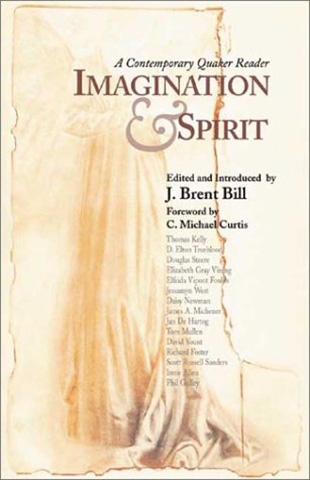"Today's Quakers continue the publishing heritage that the first generation of Friends started. . . . The fruits of that ministry are apparent in the subtle (unlike their forbears) exploration of the spiritual themes comprising Quaker theology — that God speaks directly to the individual; that each individual has worth, dignity, freedom and responsibility before God; that the Gospel is rooted in peacemaking and love; that there is that of God in every person; that God's will can be known and obeyed; that faith involves an immediate personal encounter with God; that communion with God is intimately related to our inner spiritual experience; that moral purity, integrity, honesty, simplicity and humility are essential to the Christian life; that Christian love and goodwill are ways of life that overcome hatred and violence; that Christ-like love finds expression in humanitarian service and social justice; that the Spirit of God grants us insight, guidance, and understanding of spiritual truth; and that our faith and our life's practices must be married. Friends continue to reject formal sacraments, the division between clergy and laity practiced by most churches, and creeds. They remain committed to peacemaking, equality, and simplicity. They follow the freedom of Friends to speak (or write) when they feel moved to do so. They adhere to the Friendly testimony of truth-telling — using clear, direct language to speak the concerns of their heart, no matter where that leads them. These writers bear witness to the Friendly belief that faith is a great frontier to be explored and that God's Spirit calls us each deep in our souls when we are silent and still. Quakers, these writers included, believe along with first Friend George Fox that 'Christ [is] the true teacher within; [and] that God was come to teach His people himself . . . that they might come to receive freely from Him.'
"Today's Quakers also differ from their writing forbears in that they publish widely and well in a range of genres — devotionals, theological treatises, general fiction, short stories, screenplays, Broadway plays, mysteries, humor, and more. Many of these are genres that the early Quakers would never have published in and would have counted as evil. The changing attitude of Friends toward the arts has encouraged this migration toward more 'worldly' writing. As London Yearly Meeting wrote in 1925, 'Only such writings as spring from a living experience will reach the life in others, only those which embody genuine thought in clear and effective form will minister to the needs of the human mind. A faith like Quakerism should find expression in creative writing born of imagination and spirit.' "
